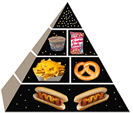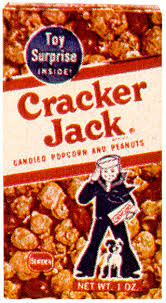
We know what to avoid in our diets: fun foods like ice cream sundaes, chocolate pies and most anything sold at a baseball park. Researchers are now trying a different approach, emphasizing what we should eat. Reporting in the August edition of the Journal of Nutrition, scientists ranked foods based on how good they are for you to create a Nutrient-Rich Foods Index.
The concept is not new; in 1995, the USDA published the first Healthy Eating Index. It has been updated several times.
To give the index scientific weight, the researchers created a formula that combines values for nutrients and calories to produce the highest correlation to the index. The healthiest — though maybe not the best-tasting foods — rise to the top using their math.
“These results confirmed that better diets do not necessarily come from just restricting certain nutrients; the addition of beneficial nutrients is critical for a higher diet quality,” Nutrient Ingredients-USA quotes the scientists as writing in the article, which is restricted to subscribers.
Developing the ranking is just the beginning, say researchers Victor L. Fulgoni III of Nutrition Impact LLC, Debra R. Keast of Nutrition Database Research Inc., and Adam Drewnowski of the Center for Public Health Nutrition at the University of Washington.
“Considerable research is still necessary to determine how to best present nutrient profiling to consumers in a way that will actually lead to selection of foods that improve the overall diet,” they are quoted as writing. In other words, persuading Americans to give up their peanuts and Cracker Jack will take some work.




Its pretty clear by now which foods are good for you and which foods are bad for you. I try to stick to the good foods with the occasional cheat meal.